Benjamin Franklin summed it up nicely in a 1789 letter stating “in this world nothing can be said to be certain, except death and taxes.” Holding true to this adage, the bankruptcy code generally treats taxes as a debt that can’t be wiped out through bankruptcy. There is hope, however. Under certain circumstances tax debts are dischargeable.
Can you use bankruptcy to get rid of taxes?
Generally speaking, tax debt may be discharged if:
- The tax return was due three years before the filing date of the bankruptcy petition. This deadline is extended by any extensions to file the tax return that were requested by the taxpayer. This time period may also be extended by the filing of a prior bankruptcy case.
- You filed that return at least two years before the bankruptcy filing.
- The IRS has not assessed the liability for the taxes within the 240 days (approximately 8 months) before the bankruptcy filing.
- You did not willfully attempt to evade the taxes.
- In the Fifth Circuit (the Federal Appellate Circuit that includes Mississippi) we also have the requirement that the tax returns must have been filed by the original due date or the due date for a timely filed extension. In the case of In re McCoy, the Bankruptcy Court concluded “that because McCoy’s filings [for certain years] did not comport with Mississippi’s timeliness requirements, they were not ‘returns’ for discharge purposes.” McCoy v. Mississippi State Tax Comm’n, 666 F.3d 924, 926 (5th Cir. 2012)
Tax liens
Tax liens will survive a bankruptcy. Although your personal liability for taxes can be wiped out under certain circumstances, all or part of a tax lien may remain afterwards. If you have a tax lien against your property, an experienced bankruptcy attorney can help you determine the effect a bankruptcy will have on the lien.
What about debts incurred for the purpose of paying non-dischargeable Federal, State or Local taxes?
If you took out a loan (including paying by credit card) to pay taxes that are otherwise not dischargeable in bankruptcy, the money you borrowed to pay the taxes will not be wiped out or discharged in a Chapter 7 bankruptcy. In Chapter 13, however, you can get rid of this kind of debt.
Even if the taxes are not dischargeable you may be able to deal with them more effectively in a Chapter 13 bankruptcy. A Chapter 13 bankruptcy will typically stop penalties and interest from accruing on a tax debt while the bankruptcy is pending. Chapter 13 can also stop an IRS wage garnishment. A chapter 13 bankruptcy also allows for payment of tax debts over a three or five year period of time.
It should not be surprising that the interplay between tax laws and bankruptcy laws can be complex and detail oriented. Please feel free to contact me to discuss what relief bankruptcy may or may not offer in your particular situation. To schedule an initial free and confidential consultation call 601-853-9966.
